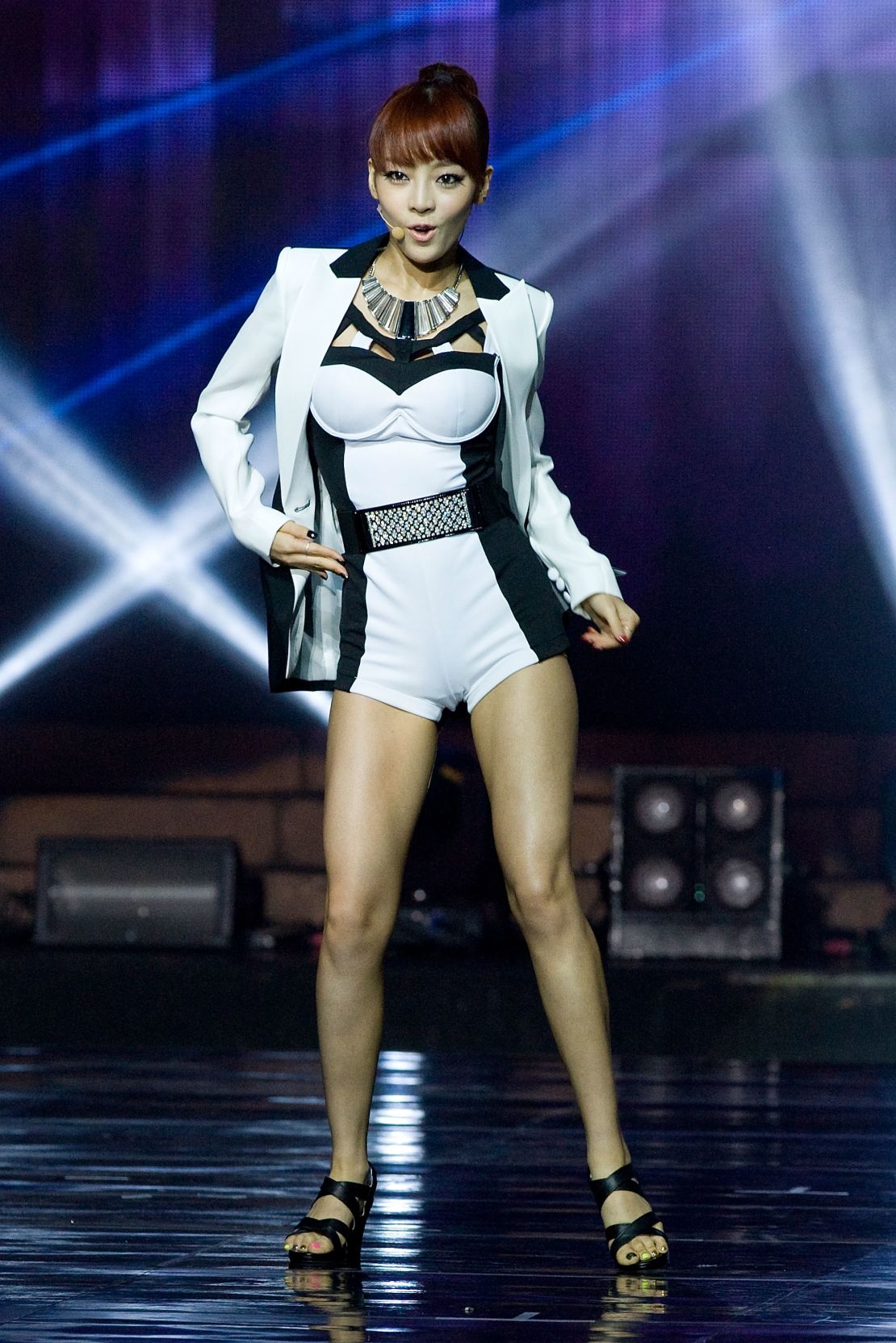South Korean singer and actress Goo Hara has apologized to fans after being found unconscious at home, reigniting debate about the intense pressure on the country’s K-pop superstars.
The singer, who was once part of the South Korean girl band Kara, had posted the word, “Goodbye,” to her Instagram account, prompting a rush of comments from concerned fans.
She later deleted the post.
Goo was discovered unconscious at her home in Seoul’s fashionable Gangnam district shortly after midnight Sunday, the city’s Metropolitan Police Agency said. She was rushed to hospital.
On Tuesday, Goo addressed the reports, apologizing for “causing concern to everyone and causing a commotion,” according to Sankei Sports, a media outlet in Japan, where Goo has a large following.
“I’m recovering. Many things overlapped and I had been suffering. But I’ll steel myself and work to show you my healthy self,” she reportedly said.

Since last September, Goo has been embroiled in a public dispute with her former boyfriend Choi Jong-bum. She has accused Choi of blackmailing her by threatening to release video of them having sex, according to the prosecutor’s office. Choi has denied the claims.
She had been due to testify against him in court later this week.
Under pressure
Goo is not the first K-pop star to suffer from the pressures of a high-profile career.
Jonghyun of K-pop group Shinee killed himself in December 2017 after bouts of depression.
In his final message to his friend he wrote: “I’m broken inside … I’m completely alone … I wanted someone to notice but no one knew. They haven’t met me so of course they don’t know that I even exist.”
Brian Joo, a K-pop star and former member of the group FlyToTheSky, told CNN in 2017 that he had suffered from depression but had found trouble seeking help.
In 2018, Joo posted on his Instagram account screenshots of malicious messages he had received.
“Can anyone help with some psycho people, who keep saying I did things to them, when I haven’t even met them in real life? This person has been threatening me, my friends and my family for years,” he wrote.
Stacy Nam, a K-pop communications specialist, says its stars are under intense pressure to act “in character” in public.
She says: “The image you must maintain as an idol has to be clean. However, anything you do can be spun and taken out of context by a random person on the street.”
Public sympathy
The South Korean public has largely been sympathetic to Goo’s move to take her former boyfriend to court.
The saga has played out against the backdrop of calls for greater gender equality through the #metoo campaign and #mylifeisnotyourporn, a hashtag that calls for an end to the illegal filming and distribution of sex tapes.
Digital Sexual Crime Out, a South Korean feminist group fighting the proliferation of spycam and illegal sex videos, published a statement supporting Goo with a hashtag #WeAreWithYouHara. It wrote on Twitter: “The perpetrator Choi is living well, so why should only the victim suffer?”
Nam says public perceptions have changed in recent years. “Before, for these women, having sexual images leak meant the end of their career,” she said. “Today, people are not appalled at the fact that she had a boyfriend but at her choice of boyfriend.”
Prosecutors indicted Choi in January on charges of illegal filming, coercion, and assault. His trial was scheduled for Thursday but is now expected to be delayed.




